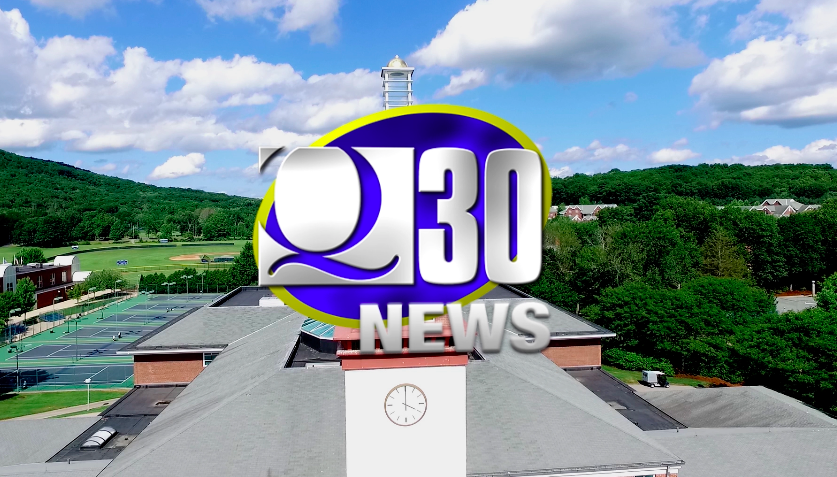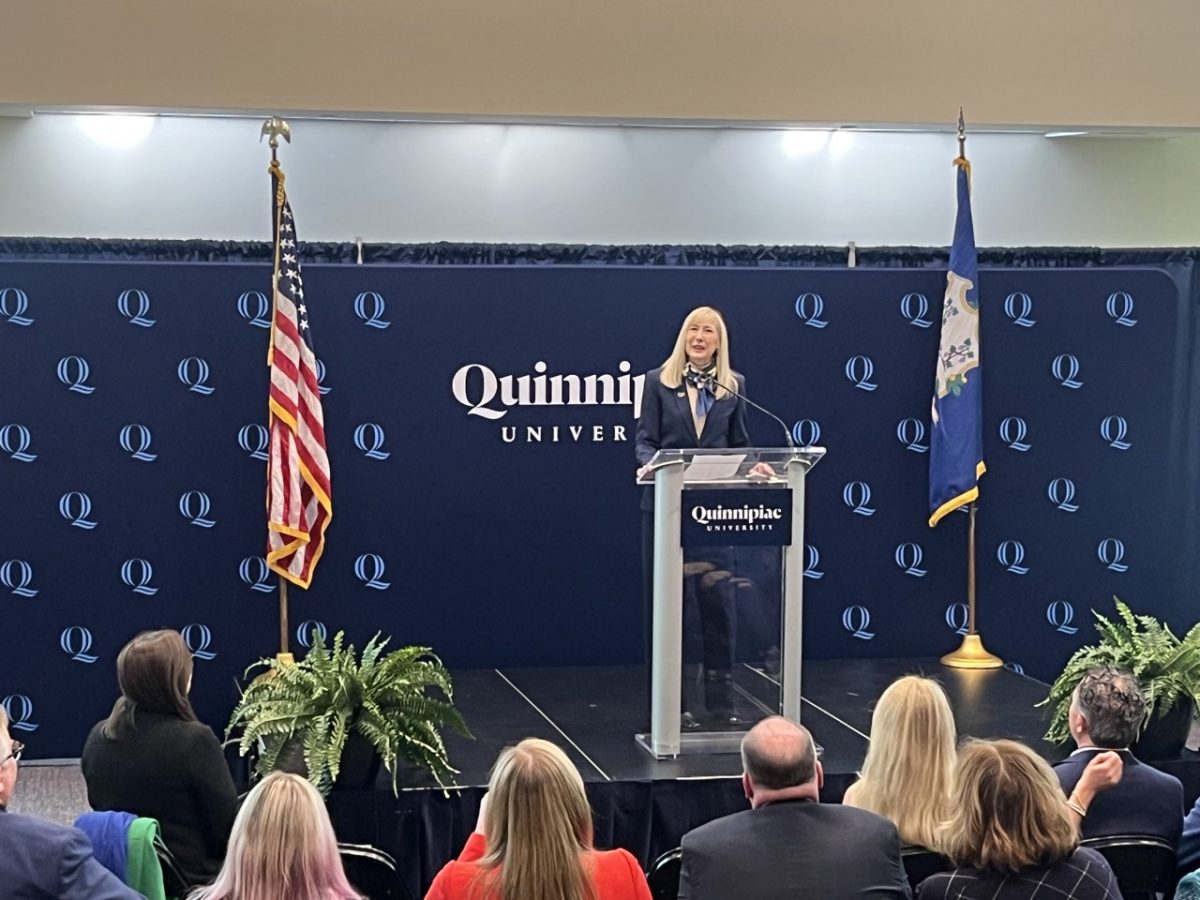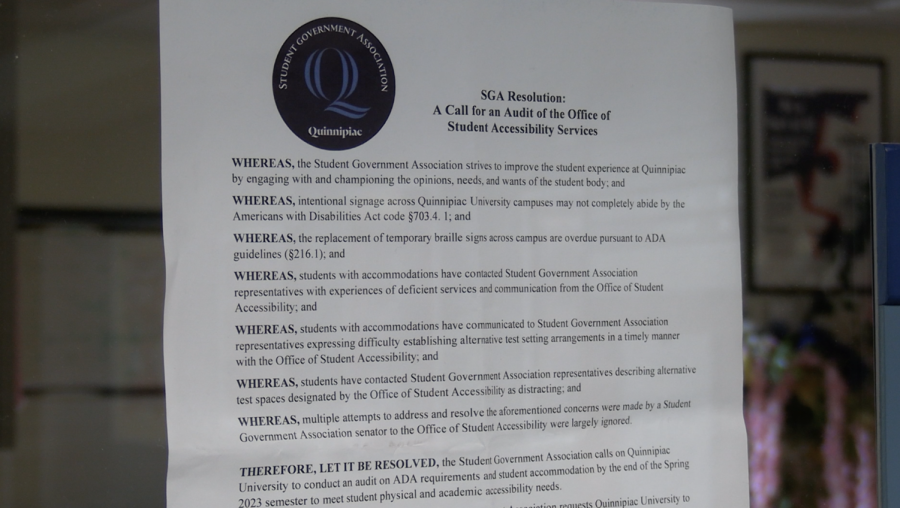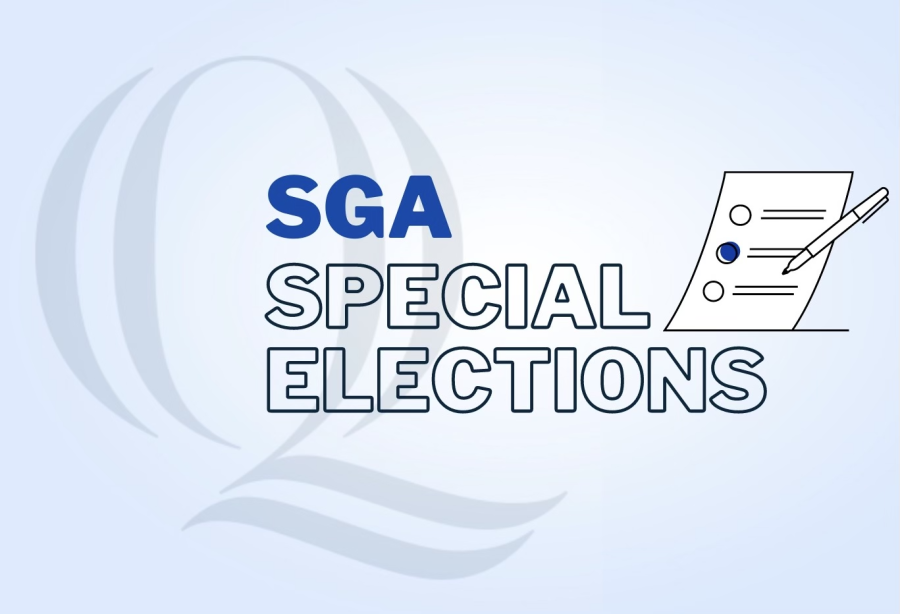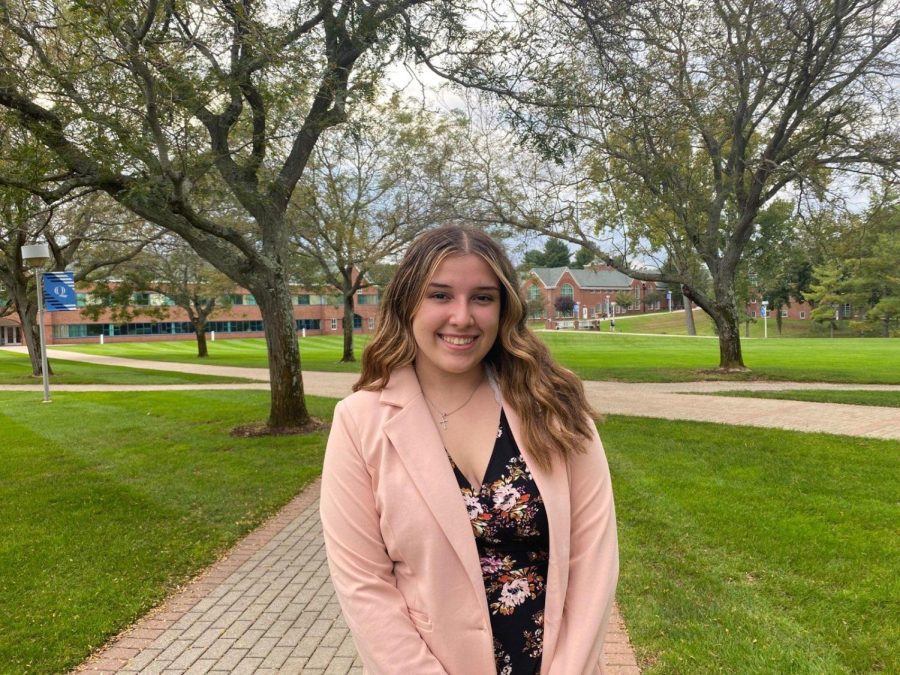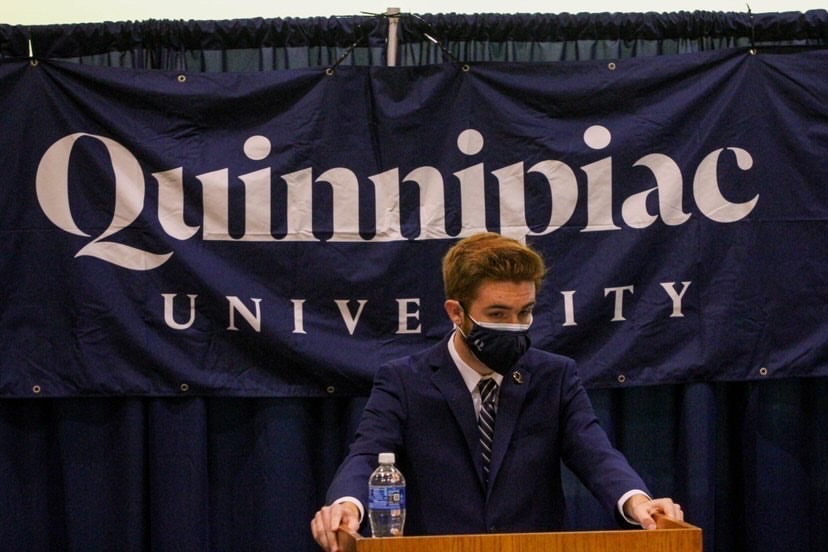By Anna Sackel
Follow @annasackel
Following President Trump’s announcement of his executive order to ban travel from seven Middle Eastern countries, Quinnipiac’s Vice President Mark Thompson released a statement to members of the university.
The email cited various outlets students who are concerned about the order could go to for information and help. Thompson also added that “if you are living in or are a citizen of one of the seven countries … please check in with the Department of Cultural and Global Engagement.”
Later in the email Thompson assured students that their education is what is most important, and that the university is fully committed to the members of its community.
“Quinnipiac University is committed to the continued success of all of our students, regardless of religious belief, country of birth or citizenship,” Thompson said.
This statement gave reassurance to some students on campus. Vice President of the Muslim Student Association, Ali Munshi, says he’s glad the statement was made and that it’s good to know there is a place on campus where he can feel safe.
“The email made me feel like there are places I can reach out to if need be but on this campus sending out an email isn’t going to solve the problem,” Munshi said.
Although the Muslim population at Quinnipiac is small, many students have been affected by Trump’s new executive order. Chief Diversity Officer Diane Ariza says there are students studying here who live in Libya, one of the seven countries listed in the travel ban, as well as students who are undocumented citizens.
The last thing Thompson said in his statement was that, “while the University is bound to comply with state and federal law, enforcement of federal immigration policy primarily rests with federal authorities.”
This hints that the university is and plans to remain a sanctuary university. If a university is a ‘sanctuary university’ it means they follow all federal laws, but will not aid the federal government in doing its job. How this applies is that the university will not turn in any undocumented citizens to the government; if the government wants them, it is up to them to find and detain them, not the university.
Contrary to this statement, claiming that the University will do everything in its power to protect its students, President John Lahey has refused to sign the ‘Statement in Support of the Deferred Action for Childhood Arrivals (DACA) Program and our Undocumented Immigrant Students.’
The DACA program is an immigration policy started by former president Barack Obama in 2012 that allows certain undocumented immigrants who entered the U.S. as a minor to stay in the country to finish out their education.
As of Feb. 1, 617 colleges and universities have signed a statement to support DACA to ensure President Trump does not stop it. At the weekly Student Government Association general board meeting, there was a vote to express their support of DACA in hopes of persuading Lahey to sign the statement as well.
“It is so important that we make sure all members of this university feel safe and comfortable. John Lahey does not support this and we as the student government need to show him that we believe in protected all students.” Jack Onofrio, SGA sophomore class representative said.
There has been no word yet on what Lahey plans on doing and whether or not he will support the DACA program and undocumented students.


